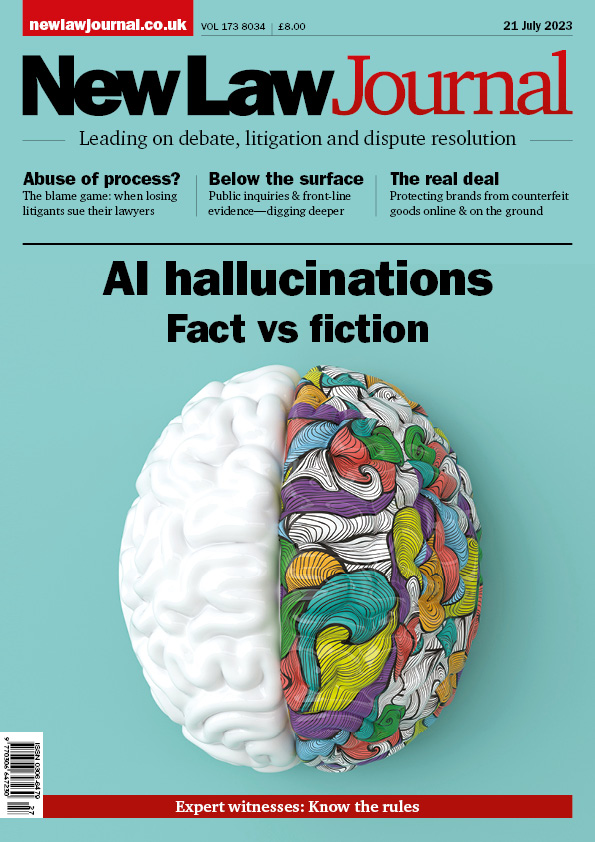THIS ISSUE

What next when a disgruntled litigant decides to sue their lawyer for negligence after losing a case? Michael Bundock examines when such a claim may be struck out as an abuse
"Neil 'Part' worth outlines the latest thinking—& some potential inaccuracies"—from the Home Office on stop & search powers
Artificial intelligence (AI) tools are known to ‘hallucinate’, making up false information or confabulating to fill gaps in their knowledge. But who is responsible in law for any libel or harm caused as a result? In this week’s NLJ, Chloe Flascher, associate at Withers, addresses this fascinating conundrum.
In this week’s NLJ, Richard Scorer, head of abuse law & public inquiries at Slater and Gordon, highlights the necessity of ‘proper forensic scrutiny’ during public inquiries.
’ A recent employment appeal concerning a teacher dismissed for expressing gender-critical views on Facebook is a significant development in employment law because the Employment Appeal Tribunal (EAT) focused on the ‘reason why’ question. In
this week’s NLJ, Charles Pigott, professional support lawyer, Mills & Reeve, explains why the EAT’s approach ‘marks a significant development’ for discrimination claims, breaking new ground.
'Litigants who lose sometimes blame their lawyer' is a truth widely acknowledged in the legal sector. Writing in this week’s NLJ, Michael Bundock, barrister, dispute resolution, LexisNexis, looks specifically at the circumstances in which a negligence claim may be struck out as an abuse of process because it involves a collateral attack on the earlier judgment.
Public inquiries are most effective when their scrutiny goes below the surface, writes Richard Scorer
A ’ recent Employment Appeal Tribunal ruling on gender-critical beliefs has brought human rights to the fore: Charles Pigott analyses a significant development for discrimination claims
Billions are spent on counterfeit goods in the EU & UK each year: Matti Lindberg & My Mattsson set out some top tips for brand owners to protect their rights online & on the ground
Artificial intelligence tools are not (yet) above creating false information: who could be liable for the serious harm suffered as a result of publishing that information? Chloe Flascher examines a thorny legal issue
MOVERS & SHAKERS

OUT WITH THE OLD… IN WITH THE NEW

New partner joins the Kent firm’s construction team

Experiment2

"With growing numbers of 'crypto' disputes hitting the courts in the Caribbean", Grant Carroll examines the latest power to be added to a liquidator’s arsenal

Experiment1

"With growing numbers of 'crypto' disputes hitting the courts in the Caribbean", Grant Carroll examines the latest power to be added to a liquidator’s arsenal
NEWS
Paul Magrath recalls the chequered history of law reporting prior to the establishment of a Council of Law Reporting in 1865
Mark Solon stresses the importance of experts knowing & following the rules
‘Lucy Keane assesses the damage after Paccar Inc v CAT drove a juggernaut through the UK” litigation funding industry’
"A ’ recent 'Employment' Appeal Tribunal ruling on gender-critical beliefs has brought human rights to the fore: Charles Pigott analyses a significant development for discrimination claims";





